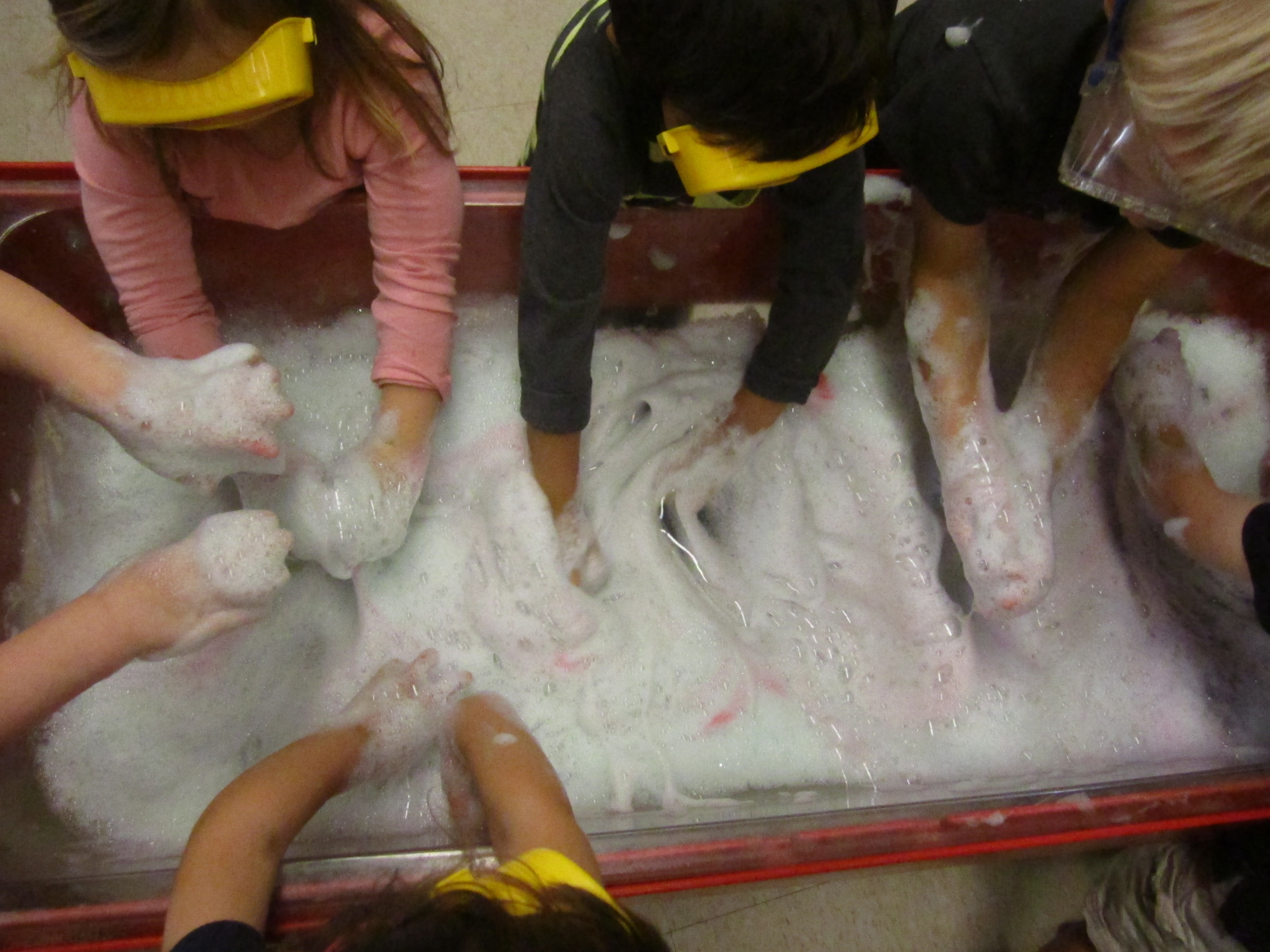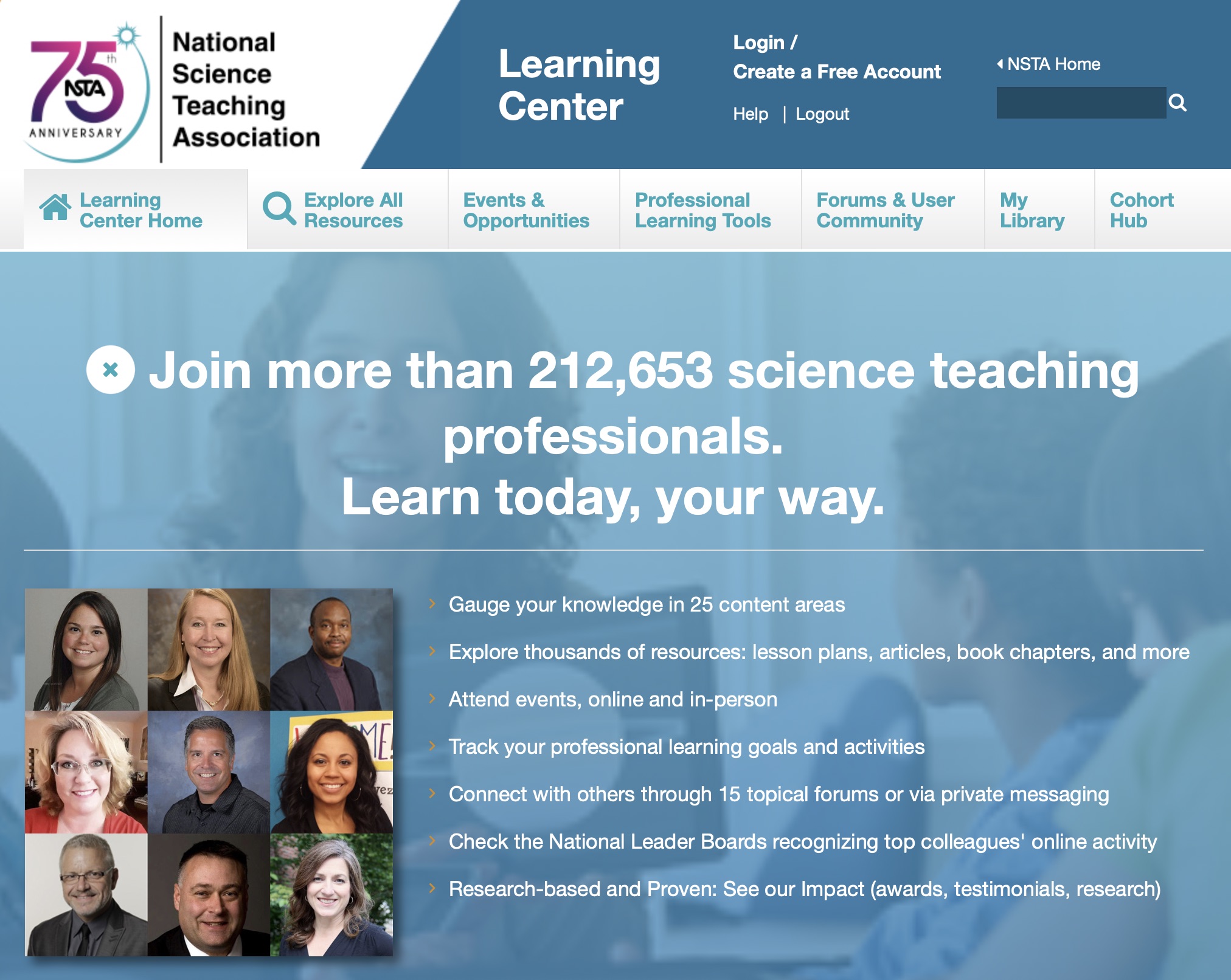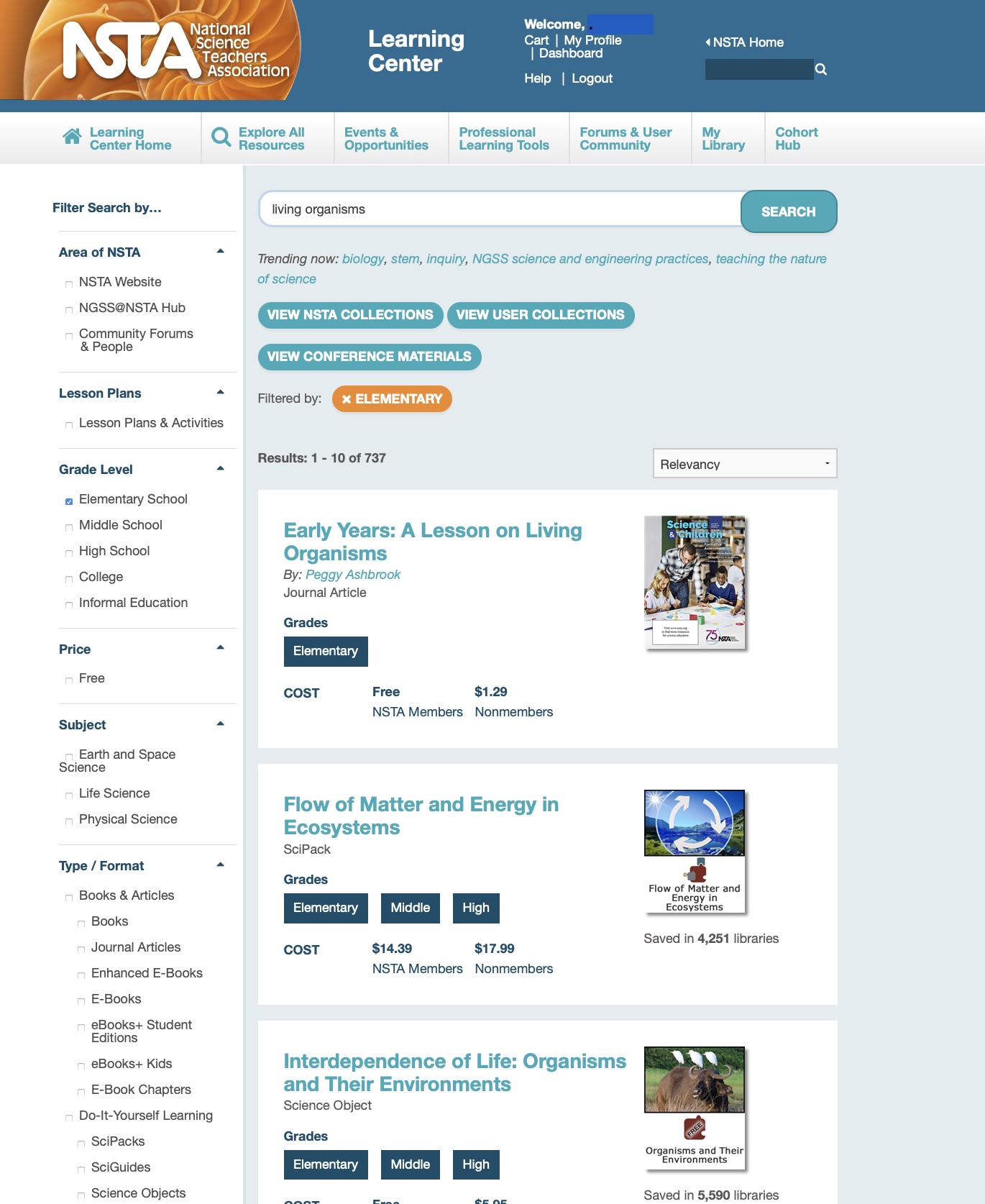Guest blog post by Jen Brown-Whale
An experienced cat herder has the knowledge and skill that comes with time and practice so that the management of their feline flock is not so much like, well, you know, herding cats. What may seem like an impossible task to the inexperienced, is a smooth and efficient operation to the master cat herder. What I am trying to say is, you cannot just throw out to your Elementary students a compelling photo or video portraying a phenomenon and expect learning to occur organically from a strictly freerange exploration of the given phenomenon. We are educators, professionals, practitioners of a craft and we must be intentional with our choices. Just as with any other subject or time in the history of science education, the most significant student learning results from intentional planning, putting our skills and knowledge to work.
I am not and will not claim to be an expert on the use of phenomena to drive instruction in the Early Childhood or Elementary Science classroom. Throughout and at the end of this post, you can find links to a variety of resources from experts. However, I do offer the perspective of an educator who has wrestled with the challenges of incorporating phenomena with fidelity into Elementary Science curriculum both at the unit and lesson level.
Concerns and questions I have heard, or have expressed myself:
“Where do I start? How do I select a phenomenon?”
Plan ahead. What are your standards, or what three dimensions do you want students to work with? Choose a phenomenon that will inspire a learning sequence that reaches the necessary standards, or selected Next Generation Science Standards (NGSS) three dimensions. The phenomenon doesn’t need to directly portray or address every single standard, or dimension covered in a unit or lesson, it just needs to be related. It should be something that students need to figure out, using the science learning that will occur throughout the lesson or unit. To be clear, a phenomenon is NOT a hook! It is not a one-time motivator, or engagement. Ted Willard, NSTA, once described that, “Anchor phenomena are not an end, they are a means to an end. The end being that students have a purpose that is meaningful to them for what they are doing.” The goal is for instruction to be designed so intentionally that students should be able to recognize and, even better, articulate their understanding of the connection between what they are learning and the anchor and/or lesson level phenomenon.
“Once I choose a phenomenon and share it with students, do I just let them go? Let them self-select their learning path and explore?
That sounds like it has the potential to be a lot like herding cats, right? Remember, a phenomenon is not simply a hook or engagement. Lesson or unit phenomena are an integral part of a carefully planned and facilitated learning sequence. When a phenomenon is presented, students should be given the opportunity to engage with the phenomenon by asking questions. Educators can then skillfully incorporate those questions into the lessons already crafted. As the learning progresses, students should continually be given opportunities to revisit the phenomenon and their questions, making revisions and being supported in recognizing connections.
“What if my students’ questions do not get at what I need to teach, what if I cannot use their questions to connect to the intended sequence of learning?”
You already know the answer to this one! After experiencing a phenomenon your students are going to ask the “right” questions, the “wrong” questions and everything in between and outside of that! Yes, they are going to ask creative and/or irrelevant questions, but they are also going to ask questions that you, as a practitioner, can skillfully connect to. Please be comfortable with that fact that not all student questions will be addressed. As Aaron Mueller in his July blogpost and Next Gen Navigator article describes, you can support students in also accepting this by first building a culture in which their ideas and questions are respected. Record student questions on chart paper and allow the list to be a living document. You may choose to use a charting strategy such as KLEWS, OWL, or KWL. Leave the list posted throughout the year and return to it as discussions relate, revising the questions and/or adding new questions. Allow students to add to the chart as they generate new questions on their own. The list of questions, including the seemingly silly or irrelevant questions can become valuable insight into your students’ interests and could inspire text selection for the classroom library or the creation of a center.
“What if my students can’t connect with the phenomenon being presented?”
You are right. A phenomenon needs to be relevant to students. How can you connect to the life experience of your students with the phenomena you choose? If selecting a lesson or a unit that proposes a phenomenon not familiar within the context of your students’ community or everyday life, think about how you can make it “real” for them. Ideally, phenomenon in the Elementary Science classroom should be capable of being directly experienced or investigated by all students. Can your students see, feel, and/or touch what it is they are figuring out? The Grade 2: Why is Our Corn Changing? unit posted by Achieve as a quality example accounts for this direct experience for all students by using actual harvest corn during the lessons.
“I want to select the perfect phenomenon. How do I find something that is super spectacular so it really engages my students?”
Take a deep breath, and a big step back. Keep it simple in the Elementary grades; keep it simple and make it relevant. I frequently remind the educators with whom I work, “As adults, we often forget what we once did not know.” This reminder was inspired by Dr. Heidi Schweingruber’s discussion of children as “universal novices” during her December 2016 opening keynote at the Ready at Five School Readiness Symposium. Keep in mind that you may have students in your second grade classroom that have never seen a mountain, or a beach. You may have fourth grade students that are not even aware of the native plants and animals in their own backyards or neighborhoods. As adults, because we know about or are at least aware of far more, we may take for granted being in the moment of discovery and slowing down to articulate connections. We may overlook how big of a deal some of the “simple” things are for our youngest learners. Especially in the early Elementary grades, our classrooms may be providing some students with the very first exposure to many ideas or concepts that we, as adults, consider everyday or common knowledge. As educators we are present to support our students in building understanding, in developing the capacity to recognize, interpret and transfer the interrelationships of the world around them.
Your inner disruptor may be starting to ask, considering the above concerns, “Is phenomena driven science instruction at the Elementary level really necessary, or is this just a gimmick? Is student sensemaking to drive learning really aligned to the research regarding high quality science education, or is it just the newest craze?”
In the very beginning – the second chapter – of A Framework for K-12 Science Education from the National Academies of Sciences the driving principles of the report are presented. The first being “all children are born investigators.” Within the explanation of the report’s first foundational perspective, the concepts of phenomena driven instruction and student sensemaking at the Elementary level are discussed:
“Thus, before they even enter school, children have developed their own ideas about the physical, biological, and social worlds and how they work. By listening to and taking these ideas seriously, educators can build on what children already know and can do. Such initial ideas may be more or less cohesive and sometimes may be incorrect. However, some of children’s early intuitions about the world can be used as a foundation to build remarkable understanding, even in the earliest grades…The implication of these findings for the framework is that building progressively more sophisticated explanations of natural phenomena is central throughout grades K-5, as opposed to focusing only on description in the early grades and leaving explanation to the later grades.” (p25)
Additionally, the presence of a phenomena or problem that supports student sensemaking to drive learning is, in fact, the very first criteria of the Achieve EQuIP Rubric for Science Lessons & Units. The EQuIP Rubric provides a standard by which to measure how well lessons and units are designed for the NGSS. A phenomenon, or problem presents an opportunity for students to figure out. Figuring out creates a need to learn, it motivates students to progress through the learning sequence. Specific indicators within the rubric’s first criterion include:
- Making sense of phenomena and/or designing solutions to a problem drive student learning.
- Student questions and prior experiences related to the phenomenon or problem motivate sense‐making and/or problem solving
- The focus of the lesson is to support students in making sense of phenomena and/or designing solutions to problems.
Do you not care for the EQuIP rubric? Too wordy? Phenomena plays a central role in the Achieve Lesson Screener as well.
The above is to say that student sensemaking is essential to NGSS aligned and designed units and lessons. Students make sense of, they figure out a carefully selected phenomena or problem. This approach is a key shift in perspective of high quality science education, even at the Elementary level. Whether we are a NGSS state or district, as educators, we are charged with transitioning our instruction to methods that not only allow for three-dimensional student learning, but also for figuring out as well. Like the professional cat herder, We have the skills to masterfully orchestrate a seemingly organic learning experience for our students, so let’s go plan!
Additional Resources about selecting and using phenomena:
Jen Brown-Whale serves as the Elementary Science Resource Teacher for the Howard County Public School System in Maryland, where she supports K-5 educators through curriculum development and professional learning. She is a member of the Achieve Science Peer Review Panel, and recently became a member of the NSTA Committee on Preschool-Elementary Science Teaching. Find her on Twitter @ElemSci_JenBW
Citation:National Research Council 2012. A Framework for K-12 Science Education: Practices, Crosscutting Concepts, and Core Ideas. Washington, DC: The National Academies Press. https://doi.org/10.17226/13165.



 I am a preservice teacher planning some lessons on how to group plants and animals according to observable features. I am struggling to think of different activities.
I am a preservice teacher planning some lessons on how to group plants and animals according to observable features. I am struggling to think of different activities.




































 How would a science teacher intertwine DNA and Mendelian genetics into lessons to younger audiences? Could elementary school teachers introduce this field by having different colored beads on a string to represent DNA and build on from there? How should teachers handle students making inappropriate comments such as “making the perfect human”?
How would a science teacher intertwine DNA and Mendelian genetics into lessons to younger audiences? Could elementary school teachers introduce this field by having different colored beads on a string to represent DNA and build on from there? How should teachers handle students making inappropriate comments such as “making the perfect human”? Join us on Wednesday, September 18, from 7:00 – 8:00 pm Eastern time to learn about the state of the climate.
Join us on Wednesday, September 18, from 7:00 – 8:00 pm Eastern time to learn about the state of the climate.